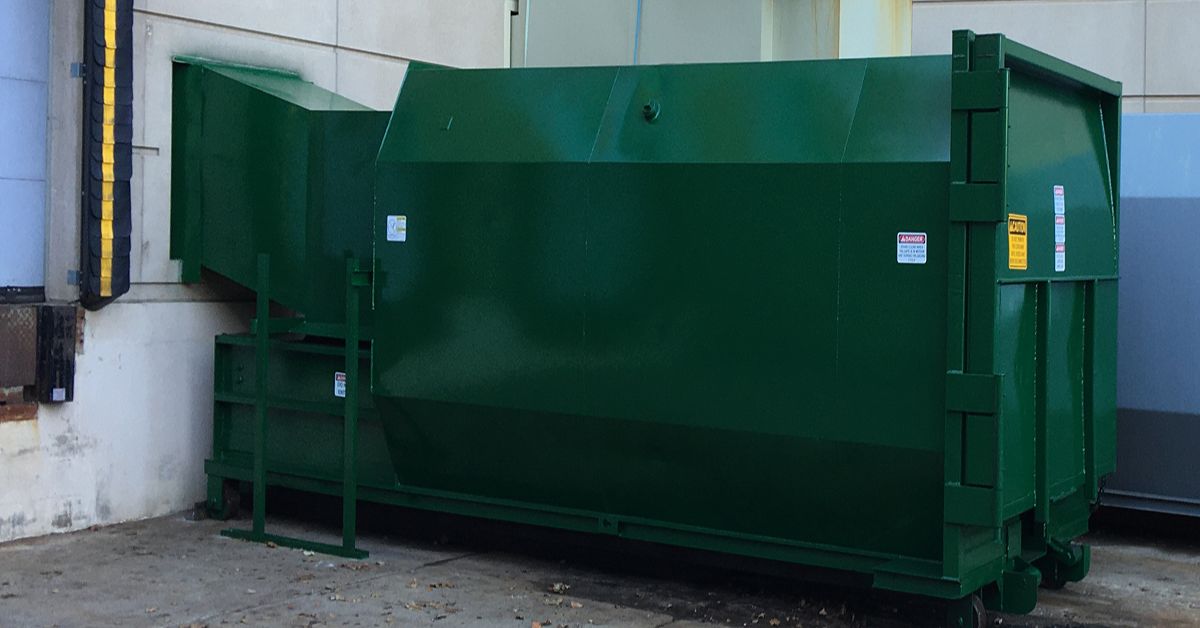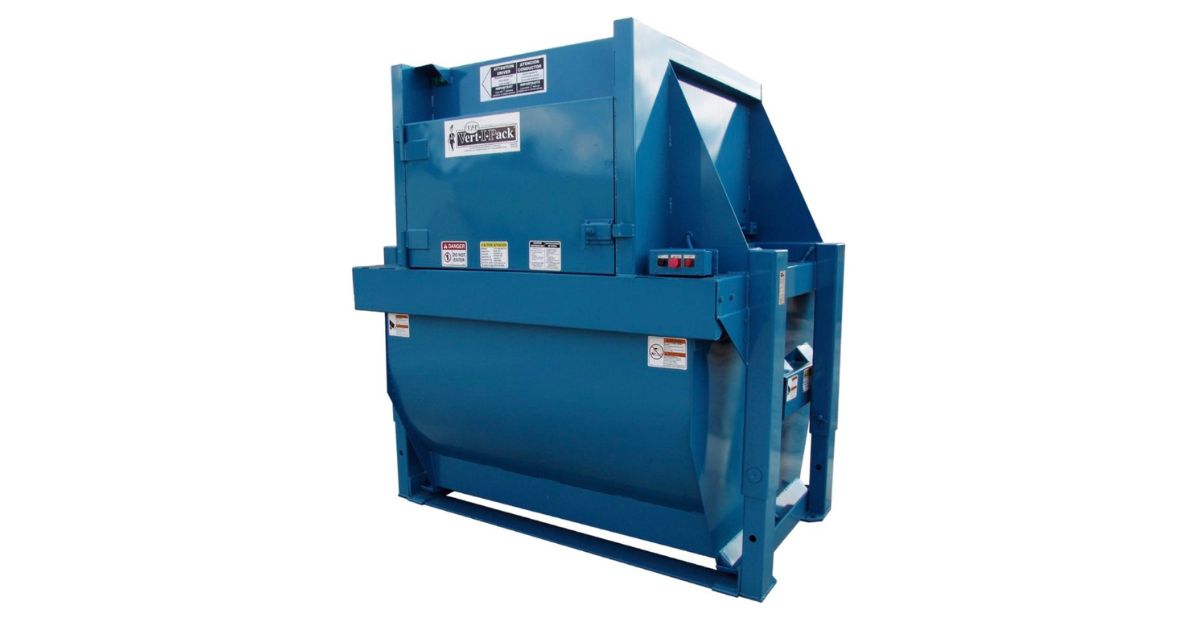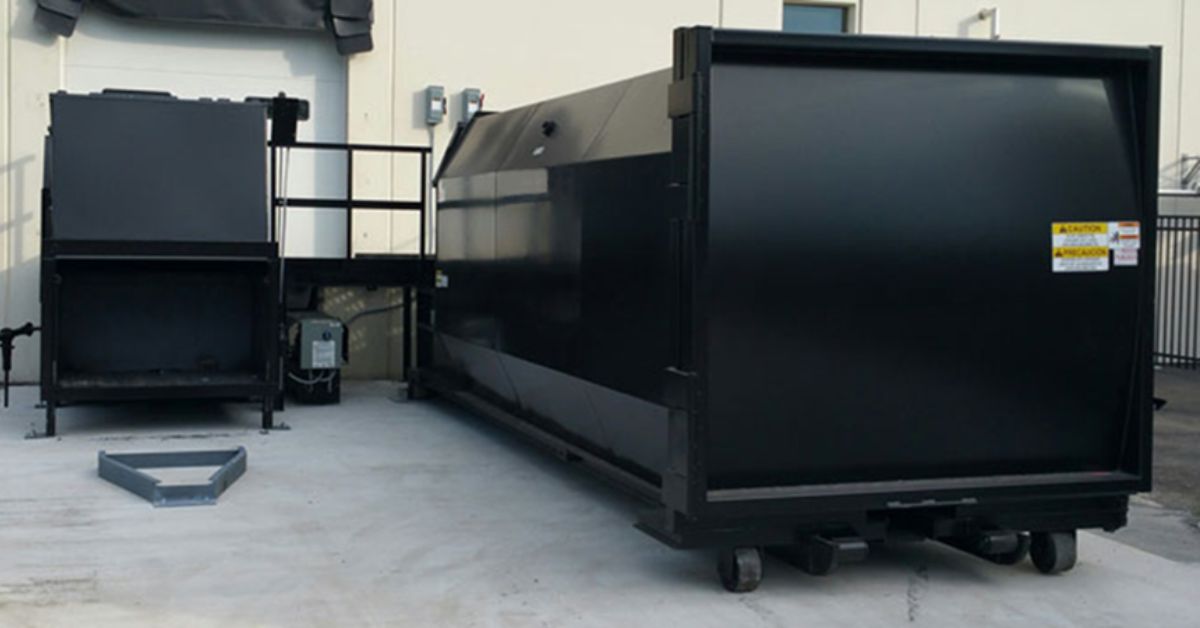
In the bustling world of property management, efficiency reigns supreme. One area that often goes unnoticed but can greatly impact operations is waste management.
Trash compactors emerge as key allies here, offering space-saving and cost-cutting benefits. Yet, with so many options available, understanding the five types of trash compactors is imperative for making informed decisions tailored to your property’s needs.
Unpacking the Basics of Trash Compactors
Trash compactors simplify waste management by compressing waste, reducing its volume significantly. They decrease the frequency of waste collection, which saves both time and money—for property managers, this means fewer headaches over managing overflowing dumpsters and coordinating frequent pickups.
Each type of trash compactor serves a distinct purpose, depending on the type of waste and the facility’s needs. Understanding these types will help you choose the best fit for your property.
Stationary Compactors Explained
Stationary compactors are ideal for dry waste, such as paper, cardboard, and plastics, and remain fixed at one location while waste containers are removed for emptying. These compactors suit commercial environments like shopping malls or office complexes where dry waste predominates.
The efficiency of stationary compactors stems from their ability to pack large volumes of waste into smaller spaces. This reduces hauling frequency and associated costs, thus enhancing operational efficiency for property managers. The installation, though requiring a permanent spot, often pays off through long-term savings.
Discovering Self-Contained Compactors
Self-contained compactors shine in managing wet waste, making them perfect for apartment complexes, restaurants, and hospitals. These compactors combine the compactor and the container into one unit, which gets hauled away when full.
The value of self-contained compactors lies in their ability to handle waste that generates liquids. They prevent leaks and odors, maintaining hygiene and cleanliness, which is essential in managing residential or commercial properties. For facilities where cleanliness is key, these compactors offer an invaluable solution.

Versatility With Portable Compactors
Portable compactors bridge the gap between stationary and self-contained types, offering flexibility and efficiency. They work well in locations where waste types vary or space constraints exist—apartments, smaller businesses, and remote sites often benefit from this versatility.
Portable compactors require less installation space, and users can easily transport them even when full. Property managers may enjoy the flexibility of placing them in different areas as needed, adapting quickly to changing waste management demands.
Vertical Compactors for Space Efficiency
Vertical compactors provide a space-efficient solution for properties with limited outdoor space, such as in urban settings, as they compress waste vertically. Their compact design does not compromise on capacity and can handle considerable amounts of waste.
Vertical compactors meet the needs of high-density areas, allowing property managers to maintain efficient operations without sacrificing valuable real estate. Additionally, their discreet profile often appeals to aesthetic-conscious developments.
Apartment Compactors for Residential Spaces
Apartment compactors offer compact, user-friendly solutions for apartment complexes and condominiums by effectively reducing waste volume, which lowers collection frequency and cuts costs for property managers.
Designed for convenience and hygiene, these compactors provide leak-proof waste storage, preventing odors and pests, which proves vital in high-density areas. Installed in communal spaces, they promote responsible waste disposal and maintain cleanliness. As a sustainable investment, apartment compactors enhance operational efficiency and environmental responsibility.
The Convenience of Compactor Rentals
Renting trash compactors offers flexibility and financial benefits, particularly for properties uncertain about their long-term waste management needs. Compactor rentals eliminate hefty upfront costs, allowing property managers to allocate funds more strategically.
Rental agreements typically include maintenance for optimal performance without additional expense or hassle. This allows property management teams to focus on other priorities as they remain confident in their waste management setup.
Selecting the Right Compactor for Your Property
Choosing the right compactor requires assessing your property’s waste types, volume, and available space. Consider the nature of the waste generated to decide between stationary and self-contained options. Next, evaluate space constraints to determine if a portable or vertical compactor better suits your property.
Your choice should align with current needs and future growth, guaranteeing the solution remains viable over time. Assessing the total cost of ownership, including potential long-term savings, will help you choose the right compactor for your property.

Leveraging Expert Advice in Compactor Selection
Consulting with waste management experts can help you select the most suitable compactor—professionals offer insights based on your circumstances, guiding you toward a decision that maximizes efficiency and cost-effectiveness.
These experts often highlight nuances in compactor technology and emerging trends, providing a competitive edge in waste management. Their guidance ensures the chosen solution integrates seamlessly into your property’s operations.
Maintenance Tips for Optimal Compactor Performance
Regular maintenance maximizes a compactor’s lifespan and efficiency. Simple practices like routine cleaning, inspecting mechanical parts, and timely repairs prevent costly breakdowns. Professional servicing keeps compactors in top condition so they continue delivering benefits.
For property managers, proactive maintenance translates to uninterrupted operations and sustained cost savings. Investing in comprehensive maintenance training for staff can improve the reliability and longevity of compactors.
The Environmental Impact of Trash Compactors
Trash compactors contribute positively to environmental sustainability by reducing waste volume and lowering the carbon emissions associated with transportation and disposal. Property managers committed to sustainability will find that many compactors align with eco-friendly practices, appealing to environmentally conscious tenants and stakeholders.
Compactors also provide an eco-conscious approach to waste by minimizing landfill impact and fostering a cleaner environment for future generations. This environmental commitment maintains the community’s reputation and supports broader ecological goals.
Preparing for Future Trends in Waste Management
The waste management landscape is evolving rapidly, with technology advancing compactor capabilities. Staying informed about innovations helps property managers remain competitive as emerging trends like smart sensors and AI integration promise efficiency and ease of use.
Property managers should monitor these developments and be ready to adopt new technologies that offer operational advantages. By embracing these advancements, property managers can streamline operations and contribute to cutting-edge, sustainable practices for the future.
Conclusion
Trash compactors are pivotal tools in modern property management, offering efficiency, cost savings, and environmental benefits. By understanding the five types of trash compactors available and their applications, property managers can make informed choices for operational effectiveness.
Whether opting for compactor rentals or purchasing outright, the key lies in aligning the solution with property-specific needs and long-term goals. Engage with industry experts, stay informed about trends, and participate in community discussions to maximize your waste management strategy’s potential. For continued success and innovation, explore partnerships and resources that support your commitment to effective waste management.


